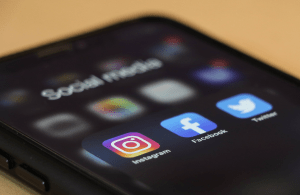Rebranding the Female Marine: My Personal Story
Published on September 10, 2020, at 9:30 p.m.
by Tralene Hunston.
“The Few, The Proud, The Marines” … but does this slogan hold for female Marines? For me, it didn’t. It’s undeniable that female veterans are treated differently from their male counterparts. Instead of the acceptance men receive, women face scrutiny, doubts and judgment.

Cue Taylor Swift’s “The Man.” Surely “if I was a man,” I wouldn’t have to explain my positioning to make others comfortable with my career decisions, and I wouldn’t be made to feel like something was wrong with my choice.
As a female Marine veteran, I struggle with branding myself as who I am, while also fighting gender roles on top of the stereotypes that come with being a woman who served in the Marine Corps.
Branding is everywhere. It is the expectation, down to finely curated social media profiles, as detail-oriented as the filters you’re expected to place over your photos. Personal branding defines who you are; it influences how people perceive you.
As an advertising and public relations master’s student, I’m encouraged to brand myself to better enable my future job prospects, and while I’ve taken several classes on branding, when it comes to branding myself, I’m torn. How does a private and brand-confused millennial adjust to this expectation, particularly when a large part of what is said to define her has negative connotations?
The Marine Corps has undoubtedly shaped a large part of my adult life: I was employed by the corps for 10 years, so how could it not? However, unlike my veteran peers, I chose to shy away from acknowledging my service. My choice to hide my military service has been something I clung to until I entered graduate school and realized I needed to leverage my veteran status, and also justify that I can do more than just represent the military.

I needed to confront the various reasons why I chose to shy away from my veteran status; for me, it was dealing with traditional gender roles and Marine stereotypes. Marines are stereotyped as being loud, having tough/harsh leadership, and eating crayons — take that as you will.
I am none of those things. Pair that with the common responses of “You don’t look like a Marine” or “Marines didn’t look like you when I served” and my personal favorite, “Is your husband the Marine?” I understand the underlying messages. Is it any wonder why I felt admitting that I was a Marine devalued who I am, particularly as a woman? That I might be treated differently by employers and friends?
Unfortunately, I have been treated differently from employers who aren’t often around veterans. Many have little experience with veterans, and typically I am the first female Marine they have met. This frequently places me in roles where I feel pigeonholed. To combat this designation, I have learned to express myself for me, and not for the veteran community. My experience has taught me to highlight which military traits best represent me and to ensure that I work on a diverse range of tasks, not just those related to the military.
Rebranding myself and maintaining a persona that accurately represents who I am in the face of stereotypes and gender roles are not easy. But if stereotypes are to be broken, we must stop hiding and work toward a personal brand that is authentic to who we are. It takes consistency, understanding and communication, from all sides. Female service members exist, and we are often not who society expects us to be.
Opinions
Comments are closed.





Post comment
So relatable!
Permalink